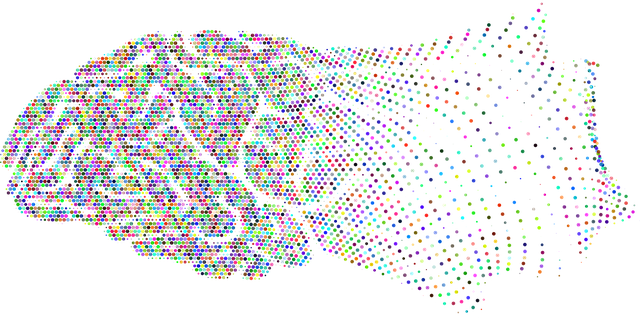Westminster Adjustment Disorder (WAD) is a mental health condition stemming from trauma, characterized by flashbacks, nightmares, and mood disturbances. Effective WAD therapy combines mindfulness meditation and cognitive behavioral therapy (CBT) to build resilience and ease symptoms. RFM (Recollection, Feeling, Meaning) therapy, focusing on processing trauma, regulating emotions, and deriving growth, is a game-changer for WAD management. The Resilience and Strengthen Factors Model (RFM), integrating practical strategies like mindfulness and art therapy with cultural sensitivity, offers a structured approach to build resilience and navigate struggles associated with WAD.
Resilience is key to overcoming life’s challenges, especially those that lead to conditions like Westminster Adjustment Disorder (WAD). This article explores how Resilience-Based Therapy (RBF) using RFM (Resilience, Flexibility, and Mastery) principles can significantly enhance WAD therapy. By understanding WAD’s impact and incorporating RFM strategies, professionals can facilitate effective sessions, empowering individuals to develop coping mechanisms and build mental fortitude. Discover practical approaches for implementing RFM in Westminster Adjustment Disorder therapy.
- Understanding Westminster Adjustment Disorder and its Impact
- The Role of RFM in Resilience Building Exercises
- Implementing RFM: Strategies for Effective Therapy Sessions
Understanding Westminster Adjustment Disorder and its Impact

Westminster Adjustment Disorder (WAD) is a mental health condition that affects individuals who have experienced or witnessed traumatic events. It’s characterized by symptoms such as flashbacks, nightmares, severe anxiety, and mood disturbances. The impact of WAD can be profound, disrupting daily functioning and relationships, and leading to feelings of isolation and hopelessness.
Effective therapy for WAD often involves a combination of approaches designed to promote resilience and ease symptoms. Techniques like mindfulness meditation and cognitive behavioural therapy (CBT) are particularly helpful in managing anxiety relief and improving mood management. These strategies empower individuals to develop coping mechanisms that help them navigate the challenges associated with trauma, fostering a sense of stability and well-being.
The Role of RFM in Resilience Building Exercises

The Role of RFM in Resilience Building Exercises
Resilience is a critical component of mental well-being, especially for individuals dealing with challenges such as Westminster Adjustment Disorder. RFM (Recollection, Feeling, and Meaning) therapy techniques have emerged as powerful tools to enhance resilience through structured exercises. By focusing on these three key aspects, individuals can develop a deeper understanding of their experiences, regulate emotions more effectively, and extract meaningful lessons from adversity. This process not only fosters a positive mindset but also strengthens the ability to cope with future stressors.
Through RFM therapy, participants engage in exercises that encourage them to recall past traumatic or challenging events, explore the feelings associated with those memories, and ultimately derive personal growth and new perspectives. These activities promote self-awareness, boost confidence through reframing negative thoughts, and cultivate a mindset of optimism—all essential elements for building resilience. By integrating these techniques into therapy sessions, professionals can equip individuals with valuable skills to navigate life’s challenges more adaptively, whether it’s managing anxiety, improving overall well-being, or simply cultivating a more positive thinking pattern.
Implementing RFM: Strategies for Effective Therapy Sessions

Implementing RFM (Resilience and Strengthen Factors Model) in therapy sessions offers a structured approach to help individuals navigate their struggles and build resilience. This model goes beyond traditional talk therapy by incorporating practical strategies tailored to each client’s unique needs, fostering a more engaging and effective treatment process. For instance, therapists can design exercises that focus on enhancing self-care practices, promoting empathy building strategies, and encouraging the development of positive coping mechanisms. These activities might include mindfulness techniques, stress management training, or even creative outlets like art therapy, all of which contribute to strengthening clients’ mental health.
When adapting RFM for Westminster Adjustment Disorder Therapy, cultural sensitivity in mental healthcare practice plays a pivotal role. Therapists should create a safe and inclusive environment, respecting individuals’ cultural backgrounds and beliefs. This might involve incorporating culturally relevant exercises or adjusting traditional practices to ensure they resonate with diverse populations. By integrating Self-Care Practices and Empathy Building Strategies within the RFM framework, therapists empower clients to manage their disorders effectively while fostering deeper connections during therapy sessions.
Westminster Adjustment Disorder can significantly impact individuals’ daily lives, but with the right tools, resilience can be built. RFM (Resilience, Flexibility, and Mastery) exercises have proven effective in therapy sessions, offering a structured approach to managing stress and adversity. By implementing these strategies, professionals can empower clients to develop coping mechanisms, enhance their emotional well-being, and improve overall mental health outcomes, making Westminster Adjustment Disorder therapy more accessible and beneficial for those seeking support.









